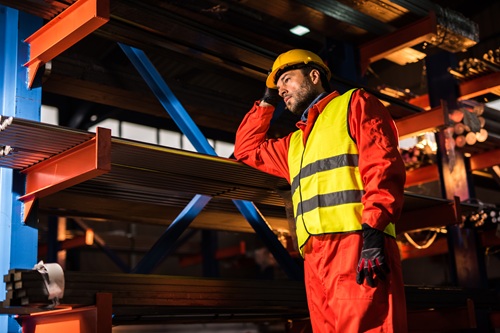Pressure to drink at work events is contributing to widespread alcohol-related absences and reduced productivity across all sectors, according to a new report from the Institute for Public Policy Research (IPPR).
News
Over a third of Gen Z workers feel pressure to drink at work events, reveals IPPR
From after-work drinks to subsidised bar tabs at company events, alcohol is often embedded in professional life. A quarter (24 per cent) of workers said they sometimes felt pressured to drink when they didn’t want to, rising to 38 per cent among younger employees (aged 18-24). Over a third said drinking at work events excluded non-drinkers or created cliques.
This culture is driving real consequences. One in three UK workers (31 per cent) have called in sick in the past year after drinking at work-related events, while 22 per cent reported working while hungover, and 29 per cent observed colleagues being tired or sluggish after drinking.
 While Gen Z may be drinking less overall, the report finds they are disproportionately affected by workplace alcohol harm. Photograph: iStock
While Gen Z may be drinking less overall, the report finds they are disproportionately affected by workplace alcohol harm. Photograph: iStock
Dr Jamie O’Halloran, senior research fellow at IPPR, said: “We often think of alcohol harm as a public health issue, but this research shows it’s a national economic problem. When nearly half of young professionals are calling in sick after workplace drinking, it’s not just a hangover, it’s a productivity crisis. If the government is serious about growth, it needs to take alcohol harm seriously too.”
Young workers and senior executives are among the most affected groups. While Gen Z may be drinking less overall, the report finds they are disproportionately affected by workplace alcohol harm. Nearly half (43 per cent) of 18 to 24-year-olds reported calling in sick after drinking at work-related events, and over a third said they felt pressured to drink to fit in or progress professionally. This suggests that even as drinking habits shift, cultural pressures in the workplace continue to drive harm.
The report also finds that heavy drinkers, between the ages of 21 and 64, are over three times more likely to exhibit presenteeism than moderate drinkers. This means they are at work, but their capacity is reduced and undermining productivity.
Despite this, most workplaces are doing too little to address the issue. Over half of employees said their employer had not provided any guidance, training, or inclusive alternatives. Yet 73 per cent of workers believe employers have a responsibility to reduce alcohol harm – a clear gap between expectation and action.
The report calls for a whole-society response, urging company leaders to create inclusive workplace cultures, offering alcohol-free alternatives at events, and embedding alcohol harm into HR and wellbeing policies.
Sebastian Rees, head of health at IPPR, said: “Employers have a huge opportunity here. By shifting away from alcohol-centric cultures and offering real support, they can boost wellbeing, improve performance, and build more inclusive workplaces. This isn’t about banning drinks — it’s about giving people the choice to thrive without pressure. The evidence is clear: doing nothing is costing us all.”
IPPR's paper, Taking stock: counting the economic costs of alcohol harm, by Dr Jamie O’Halloran and Sebastian Rees, is available to download here
NEWS

Manufacturers call for full implementation of Mayfield Review to tackle UK sickness crisis
By Belinda Liversedge on 26 February 2026
Trends in wellbeing and long-term ill health are “worsening with the size of the problem growing, not shrinking,” the UK’s manufacturing association Make UK has warned.

Employers unprepared for menopause duties, research suggests
By Belinda Liversedge on 24 February 2026
Most employers remain uncertain about duties coming into force to support female workers undergoing the menopause, a new poll suggests.

Ramadan: what employers should know about supporting their workforce
By Belinda Liversedge on 18 February 2026
As Ramadan begins this week, UNISON has reminded employers to think about reasonable adjustments for their Muslim workforce’s religious observance such as fasting, prayers, and flexible schedules.



